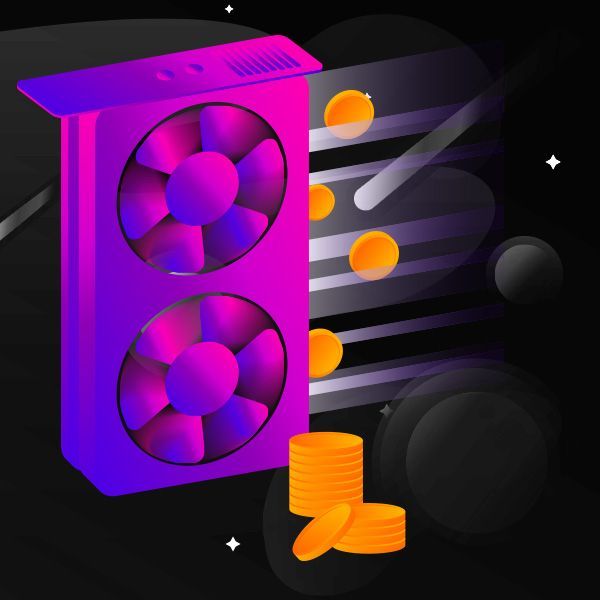Crypto Day Trading: The Difference Between Buying, Trading, and Swapping
In this section, I’m going to tell you about crypto day trading, or, to be more precise, - buying, trading, and swapping!
Whenever we talk about performing transactions with crypto, there’s a variety of terms that get thrown around. Some people “trade” cryptocurrencies, while others prefer to “buy and sell them”. Then, you also have the “cool kids” in the back, who “only swap their cryptos, because that’s the way to go”.
Are there any differences between any of these transactions, or is it all the same thing, but with different names? Well, that’s exactly what I’ll explain in this section!
So, we’re going to talk about crypto day trading - in other words, buying, trading, and swapping cryptocurrencies. I’ll explain each of these terms, on their own, and then we’ll look into the actual similarities and differences between them. In the end, we will also talk about which of these activities might suit your specific wants and needs best!
So, let’s get to it!

Video Explainer
Video Explainer: Crypto Day Trading: The Difference Between Buying, Trading, and Swapping
Reading is not your thing? Watch the "Crypto Day Trading: The Difference Between Buying, Trading, and Swapping" video explainer
Crypto Day Trading VS Swapping: What’s More Rewarding? (Animated)


Crypto Buying VS Trading VS Swapping: Definitions and Key Differences
Now, let's look into crypto day trading by first talking about “buying”.

Admittedly, this is actually the simplest type of crypto transaction, of the three. If you’ve ever transacted with crypto, there’s a pretty good chance that you have bought cryptocurrency, at some point!
The term “buying” essentially means that you’ve paid money for the cryptocurrency that you’ve acquired. Now, I must be specific here - “money”, as in, fiat (or traditional, government-issued) currency, such as the US dollar or the Euro.
As you can imagine, buying and selling crypto is definitely a common practice, especially if you’re not looking to become a day trader, and are only interested in accumulating as big of a portfolio as possible. The most common method of buying crypto these days is to visit a popular centralized exchange, register on it, add a payment method (such as a credit or debit card), and make your purchase.
Simple, right? Well, yes, it really is! This is why buying and selling crypto is so popular, especially among industry newbies - you don’t need to worry about the technical stuff, complex gas fees, and so on.
Now, when it comes to what is crypto trading, things are a bit more interesting.

As the term might imply, when you trade cryptocurrency, you’re essentially giving away your crypto for some other coin or token, instead of fiat money. If that sounds a bit confusing, here’s an example:
Imagine that your friend opened up an apple shop. You come to visit, and even though you don’t really like apples, you’re a supportive friend, and decide to get a few of them for yourself.
Now, your friend allows you to either BUY the apples, or TRADE them. If you choose the prior option, you would simply pay your friend with money, and get the apples in return, as with most other shops in the world.
However, if don’t have any money with you, but have brought along a few pears, your friend would accept them for the apples, too. This would constitute a trade - you give an asset in order to receive an asset, both of which don’t involve traditional money.
Trading crypto is, honestly, a very common activity, as well. Think about it this way - once you’ve bought some crypto on the exchange that I mentioned earlier, you might want to trade it for some other asset, on that same exchange. Most centralized exchanges have designated trading interfaces, where you can do just that.
Now, this is where it gets a bit more tricky. Up to this point, we’ve talked about centralized exchange platforms - however, crypto trading can be performed on decentralized exchanges, as well! Many traders actually prefer using DEXs, since they can often find small, less-known tokens on these platforms, and try to become early investors in said tokens.
If centralized and decentralized exchanges are a mystery to you, there's a dedicated section on this very topic - check it out!
In addition to that, you may also choose to both buy, as well as trade crypto in person - you would meet up with somebody, and perform the transaction that you both agreed upon. I wouldn’t really recommend doing so, however, for obvious privacy and security reasons.
Though why would somebody TRADE cryptocurrencies, when they can simply buy them? Isn’t the latter much simpler and faster to do?
Well, yes - but there are multiple reasons why you’d choose the trading route.

For starters, not all cryptocurrencies can be “bought” with fiat money. If you want to own some sort of a coin or token that doesn’t have a fiat pair on the exchange that you’re using, and can only be acquired by exchanging another crypto asset for it, you will likely need to perform a trade, in order to get it! Note that I’m using the term “exchanging” interchangeably with “trading” - this is just to keep things simple and clear.
Here’s an example of what I just told you - imagine that you’ve just bought your first Bitcoin, on an exchange platform. Now, you also noticed that there’s another token on that same exchange - we’ll call it the X token. Now, this token only has a BTC pair - meaning, it can only be acquired by trading Bitcoin for it. Since, for some reason, you really want to become an owner of X token, you decide to enter a trade on the exchange, and trade some of your Bitcoin for the aforementioned X token. Simple!
Next up, many individuals who partake in crypto trading do so in order to make a potential profit. These people are called “day traders” - they are constantly analyzing the market, and making educated guesses about which cryptocurrencies are going to rise or fall in price.
Is crypto day trading worth it? Well, it’s a super-complex process, and there are few day traders who are able to do it for a living - however, trading different cryptos is an essential activity here, as buying & selling simply wouldn’t suffice!
Crypto day traders are people who also participate in leverage crypto trading, or margin trading, as well. These are some advanced trading strategies that involve borrowing money from the exchange platform, in order to boost your position.
With all of that said, let’s look into the last term - crypto swapping.
At first glance, crypto swapping might look almost identical to trading. However, there’s one, big difference between the two - with trading, you enter an order book, and wait for someone to match your trade. With swapping, on the other hand, everything happens instantly - you simply swap some of your crypto asset for another, of equal value.

Is swapping crypto a taxable event, then? Well, this is something that depends on both the region that you live in, as well as the tax laws in place, at the point in time when you’re reading this section! It’s important that you look into the intricacies of crypto day trading and swapping, tax-wise, before you perform any of these activities!
Going back to crypto swapping, if you’re feeling a bit confused, you can think about it this way - cryptocurrency trading is performed when you want to maximize your potential profit, and are speculating on how the market will act and react. On the other hand, crypto swaps are all about convenience - they are super-simple to execute, happen instantly, and allow you to exchange your crypto coin or token for a different asset, hassle-free.
The Use Cases of Crypto Buying VS Trading VS Swapping
At this point, you should have a pretty good understanding of the differences and similarities between crypto buying VS trading VS swapping. Now, one more thing that I’d like to talk about is the actual use cases of these types of transactions.
Or, in other words, in what situations would buying, trading, and swapping crypto be most beneficial?

Starting off with crypto buying, this is quite self-explanatory. If you’re just at the beginning of your crypto journey, and still haven’t even registered on an exchange platform, it's highly likely that your very first mission is to acquire some coins or tokens for yourself. Unless you get lucky with an airdrop, or receive crypto as a gift from your friend, chances are that you’ll end up buying the assets, with fiat money.
Buying crypto is also the main activity that long-term investors participate in, too. Say, you’re a fan of Bitcoin, and a huge believer that this specific crypto asset will grow in price, in the long run. In this situation, you’d probably try to buy BTC quite often, and thus, grow your portfolio. Long-term investors usually don’t really need any trading or swapping functionality - they just buy their asset, transfer it to their wallets, and forget it.
On the flip side, though, crypto day trading is for those cryptocurrency enthusiasts who are a bit more involved with the market, or who want to acquire crypto coins and tokens that aren’t listed on any of the big, centralized exchanges. Don’t get me wrong, though - crypto trading isn’t only for hardcore day traders and people who are trying to make a living out of it!
Instead, trading is something that the vast majority of crypto-savvy people will surely participate in. This is especially true if you’re looking to get more involved with DeFi, NFTs, staking and yield farming, and so on.
Not familiar with the terms I just mentioned? Check out other sections on this Crypto 101 Handbook - it has all of those concepts explained in detail, and many more!
Lastly, swapping is going to be best for anyone who’s looking to exchange their cryptos in a super-quick and seamless manner. If you’re not actively trying to make a profit, but instead find yourself in need of a different crypto asset, utilizing a cryptocurrency swap is probably the way to go!
At the end of the day, however, it all boils down to the example I gave earlier - the one with your friend opening an apple shop. You can come in, and buy an apple, or trade something for that apple - I mean, you might even be able to do half an hour’s worth of work, and get the apple as a reward!
My point here is that there are multiple ways of how you can acquire a specific asset. The very same is true with crypto, as well - buying, trading, and swapping cryptocurrencies are all different types of transactions that you can utilize.















